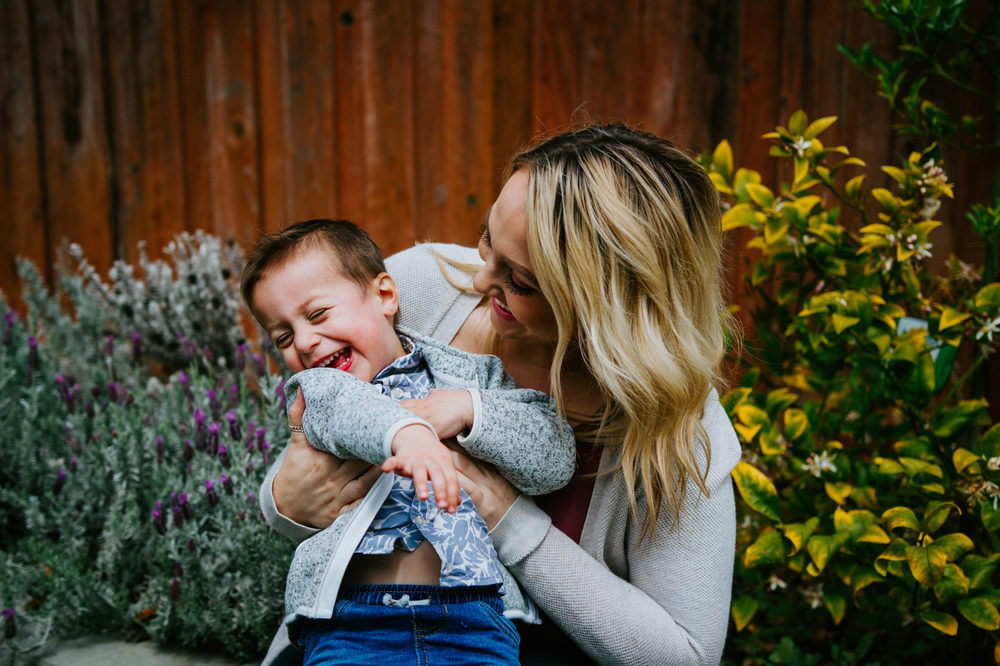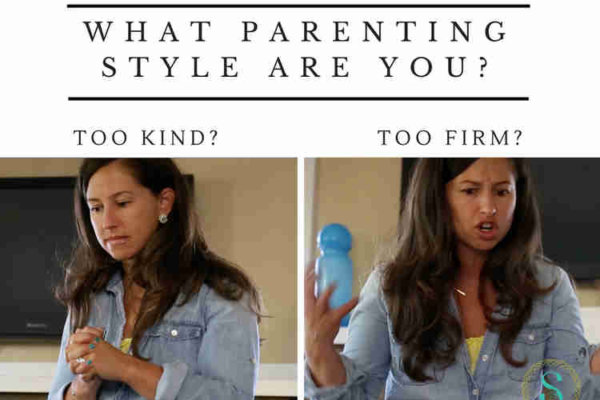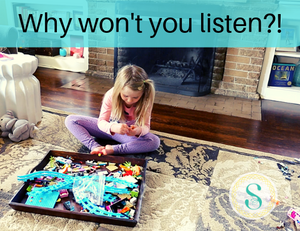The Art of Follow Through
Struggling with transitions and routines? Is your child very strong-willed? How do we motivate kids? How do we invite cooperation? How do we find that balance of connection (so they hear you) and firmness? What does follow-through look like?
We often hear grown-ups say they have trouble “getting cooperation” but what does that really mean? Sometimes it implies we just want them to obey, and do what we tell them to do without question. However, children are human beings with different priorities, viewpoints, and plans. When OUR goal is to “make them” obey, we unintentionally set ourselves up for power struggles. More importantly, we are modeling forced power over someone to gain obedience.
Do you really want the child to be obedient, or do you want them to feel the responsibility of the situation and cooperate through their own intrinsic motivation? Do you want them to grow up to be an obedient adult and do as they are told? Or do you want them to stand up in the face of injustice, be a leader, and do the right thing?
Instead, try shifting to INVITING cooperation, while committing to following through.
Dr. Jody McVittie of Sound Discipline uses a wonderful analogy of a rolling suitcase. Instead of dragging your suitcase (child) behind you, turn and LOOK at the suitcase! When we take a moment to SEE them, we can get more intuitive with our responses.
Here are some tools to invite cooperation
Curiosity questions
“How can we keep the project safe for the next time you work on it?”
“I see a bath filled with water. Hmmm, what toys should we put in first to play with?”

Find the fun
“I am going to close my eyes. When you are dressed, say “surprise!” and I will open them and see what you are wearing.”
“Let’s march like the Von Trapp children. Come on Maria!” (Or trains, or Paw Patrol, or PJ Masks, or Anna and Elsa)
Limited choices
Offer two choices you both can live with.
“Let’s get some fresh air. Should we scooter or ride bikes? You decide.”
Lean on routines
“What do we always do after lunch?”
“It is still quiet time for 30 more minutes. Can you push the button to start the timer?”
Humor
“The magic spell you put on me is wearing off! Quick! We need to leave before it is all gone. Let’s get our shoes on fast!”
“Escape the jungle! The tigers are chasing us!”

Validate feelings
“It’s hard to go inside when you are having so much fun. Let’s wave goodbye to the trees and tell them you will be back again soon! Bye trees! Bye birds!”
Use toys and comfort items
Is there something they can bring with them to the next step in the routine to ease transitions? Either physically or as part of the conversation or game?
“Let’s bring that Lego with us to the stroller.”
Ultimately, the key is to FOLLOW THROUGH
Commit
Make a decision and let go of the wiggle room! If it’s time to go, start putting on your shoes and move out the door.
Find other doors
Instead of repeating the same thing over and over, keep trying different ways “in.” Go back to the list above and try something new.
Avoid bribes or threats (or sticker charts!)
Just lean in and keep them focused.
“You are having fun in the bath and it’s time to clean up. Do you want to pull the plug or should I? You decide.”
Then if/when they freak out because you pulled the plug, just redirect and move on. “Who are we brushing out of your teeth tonight? Moana or Maui?”
Stop walking on eggshells
Get comfortable with big emotions, big feelings, and have faith they can handle disappointment.
When we lean on tools that invite cooperation through connection, we grow our relationship with the child. When we follow through with what we say we are going to do and what is needed at the moment, we are building a sense of safety, trust, and consistency for kids so they know what is expected and how we will respond. Then, we can start to focus on those skills of responsibility, independence, work ethic, and empathy as we brainstorm solutions to move through our routines and transitions with ease.





Comments